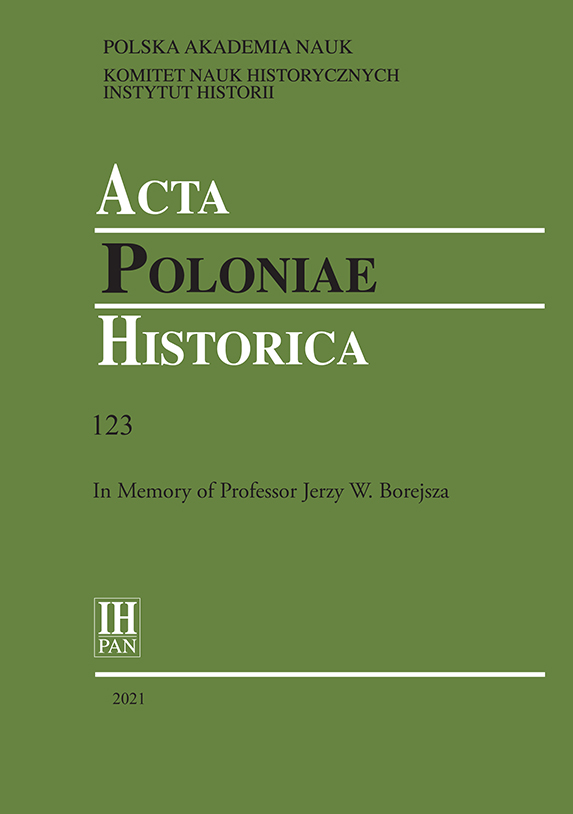Henryk Dembiński: The Man Who Became a Communist after Death?
DOI:
https://doi.org/10.12775/APH.2021.123.09Słowa kluczowe
communism, Comintern, the left, Communist Party of Poland, Communist Party of Western Belorussia, Henryk Dembiński, Czesław MiłoszAbstrakt
The case of Henryk Dembiński (1908–41) represents the left-wing involvement of Polish intellectuals in the interwar period. After 1945, the party historians left a communist mark on his image. Those in exile also accepted this thesis. In fact, party historians portrayed Dembiński’s life in a one-sided fashion and omitted events inconsistent with their narrative. In light an of relevant accounts and documents, this article shows that Dembiński was neither a member of the communist party nor its youth organisation even though, in 1935–6, he participated in some activities inspired by the Communist Party of Poland (KPP), and edited a periodical supported financially by the KPP. It is unclear whether this was conscious cooperation or a matter of manipulation by the party. In 1937, Dembiński joined the Polish Socialist Party (PPS) and was engaged in catholic activities centre, which the communists at the time perceived as a change of his political views. Nonetheless, after the war, party historians unequivocally stated that he was a communist.
Bibliografia
Brodowski Leon, Henryk Dembiński, człowiek dialogu (Warszawa, 1988).
Filaszkiewicz Olga, Respublica Academica Vilnensis: polskie stowarzyszenia ideowo-wychowawcze studentów Uniwersytetu Stefana Batorego w Wilnie w latach 1919–1939 (Elbląg, 2014).
Filipajtis Eugeniusz, Lewica Akademicka w Wilnie, 1930 – pocz. 1935 (Białystok, 1965).
‘Henryk Dembiński, Listy do żony’, ed. by Marek Zaleski, Res Publica Nowa (lato 2004), 128–41.
Henryk Dembiński. Wybór pism, ed. by Michał Szulkin (Warszawa, 1962).
Jędrychowska Anna, Zygzakiem i po prostu (Warszawa, 1965).
Kołakowski Leszek, Main Currents of Marxism, ii (Oxford, 1978).
Miłosz Czesław, The Captive Mind (New York, 1953).
Pełczyńska Wanda, ‘Tworzenie legendy’, Polemiki, 6 (1967), 336–66.
Poprostu – Karta, 1935–1936, ed. by Barbara Winkiel (Wrocław, 1953) (Materiały do dziejów postępowej publicystyki, 3).
Sukiennicki Wiktor, Legenda i rzeczywistość. Wspomnienia i uwagi o dwudziestu latach Uniwersytetu Stefana Batorego w Wilnie (Paryż, 1967).
Pobrania
Opublikowane
Jak cytować
Numer
Dział
Licencja
Title, logo and layout of journal are reserved trademarks of APH.Statystyki
Liczba wyświetleń i pobrań: 357
Liczba cytowań: 0



